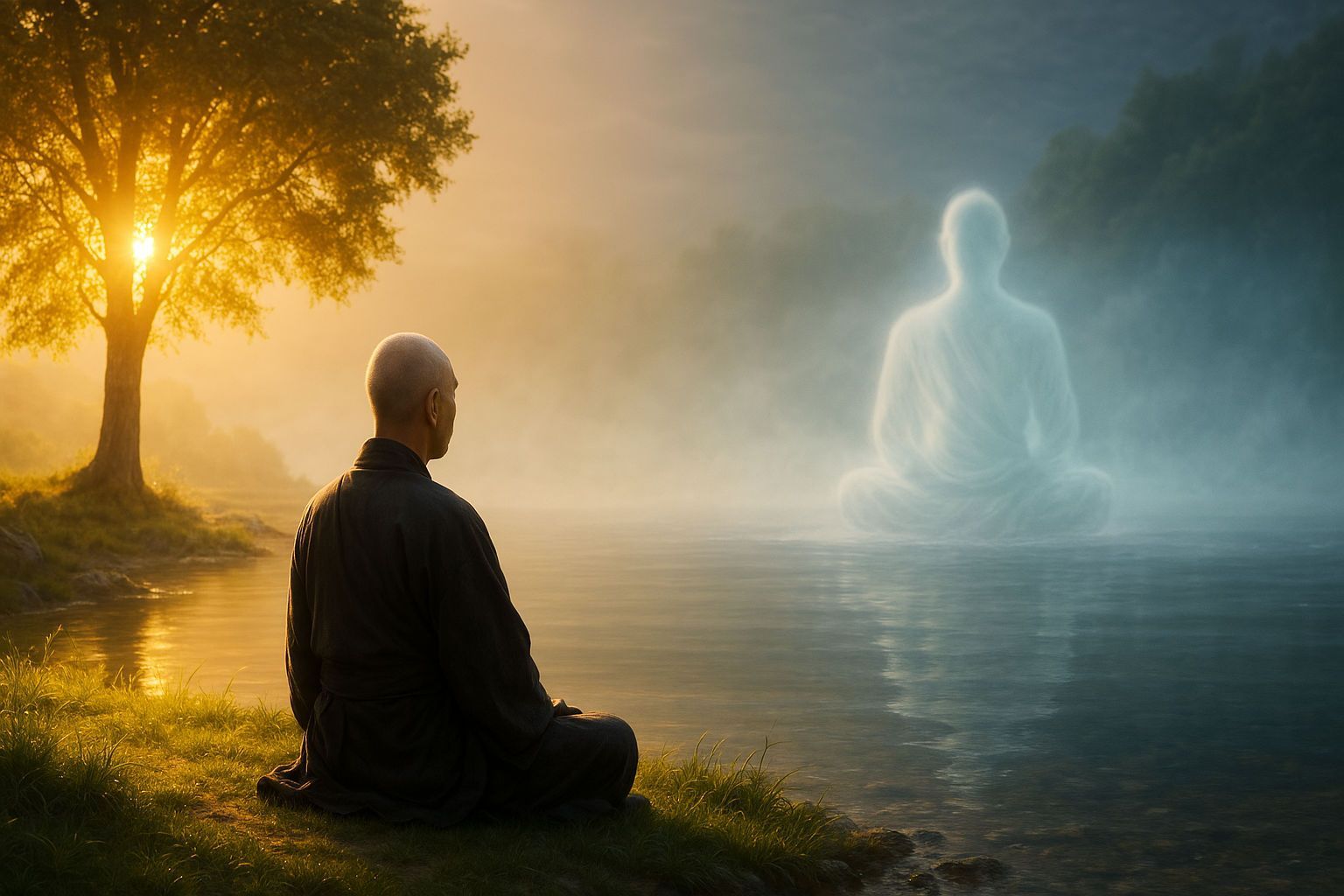Two Worlds
In Zen Buddhism and in other spiritual traditions, there is the concept of living in two worlds. In The Heart of the Buddha’s Teaching (1999), Thich Nhat Hahn speaks of a world of “relative truth” and a deeper world of “absolute truth.” He says, “The deepest level of practice is to lead our daily life in a way that we touch both the absolute and the relative truth” (128) He seems to be referring to the ordinary world of separateness and the intuitive world of non-separateness.

Similarly, in Opening the Hand of Thought (2004), Kosho Uchiyama says, “We live simultaneously as a personal self, an individual taken up with everyday affairs, and as a universal self that is inclusive of the entire universe” (xxxi).
Also, when I followed Sufism (Muslim mysticism), I learned that a “dervish,” a member of a Sufi order, was one who stood on the threshold. A person on a threshold is capable of being on either side of the door, and he or she can put a foot on both sides at once. In Sufism, one side is the ego-driven world of getting and spending, and the other the open-hearted world of unity and closeness with God.
As I look at my own consciousness, there are two worlds there as well. There is the ego-world, which, thank goodness, at my age of 86 and long practice, is rather faint; and the world in which I seem to dwell in amiable closeness with things and people. My ego gets stung with the usual slings and arrows, but I can fairly easily put ego aside and enter the other world.
There is another aspect to this “other world,” which I find clearly alluded to by Kosho Uchiyama. Referring to his life as a Buddhist priest, he says, “. . .This choice. . .has been given life by a great power that transcends my own willpower and thought, whether you call if chance, fate, life itself, or the providence of God” (34).
The renowned teacher from the Hindu tradition, Nisargadatta, in The Ultimate Medicine (1994), has the same insight. He says that, in reality, in one’s life, one is “being lived”; “whatever one is doing, one is not doing, but one is made to do” (97) In I Am That (1973), Nisargadatta says, “Accept life as it comes and you will find it a blessing” (491)
In my experience, to recall my insight that a beneficent power is the doer of my life solves most of my difficulties.
All Rights Reserved | Zazen Essays